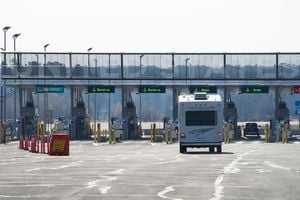Brazilian retail sales saw a notable increase of 1.6% in April 2025 compared to the same month last year, according to the Cielo Retail Sales Index (ICVA). This marks the first recorded increase in retail sales for the year, signaling a potential recovery in consumer spending following a challenging economic landscape.
In nominal terms, the growth was even more impressive, with a rise of 7.9%. The data reflects the performance of retailers across 18 sectors, offering a comprehensive view of the market dynamics at play. Among the various segments, the Non-Durable Goods category was particularly robust, showcasing a remarkable growth of 4.2%. This surge was primarily driven by the Specialized Food Retail sector, which benefited significantly from Easter-related sales, particularly in chocolate shops and candy stores.
Carlos Alves, the vice-president of Technology and Business at Cielo, attributed this recovery in commerce to the dual impact of the Easter celebrations and the Tiradentes holiday. "One of the highlights of the month was the Specialized Food Retail segment, which was boosted by sales in chocolateries and candy stores. In this case, there was a calendar effect that benefited retail performance in April since last year Easter fell in March," Alves explained.
Despite the overall growth, not all sectors fared well. The Services and Durable Goods sectors experienced declines of 2.3% and 1.9%, respectively. Within the Services sector, the Auto Parts and Automotive Services segment recorded the largest drop, while the Optical and Jewelry sectors faced the most significant challenges in the Durable Goods category.
Alves also pointed out that the Tourism and Transportation sector saw increased activity, likely spurred by the proximity of the holidays, which often encourage travel and related expenditures. This uptick in tourism aligns with broader trends observed in consumer behavior during holiday periods, where spending tends to rise.
In another significant development, the National Electric System Operator (ONS) revised its electricity demand forecast for Brazil in May, now predicting a decrease of 0.3% year-on-year, estimating an average load of 78,762 megawatts (MWm). This is a stark contrast to the previous week’s projection, which anticipated a 1.9% increase. Such adjustments highlight the volatility within the energy sector, reflecting broader economic conditions that may influence electricity consumption.
The ONS’s adjustments come amid ongoing discussions about energy sustainability and the need for diversified energy sources. The Brazilian government, under President Luiz Inácio Lula da Silva, has expressed interest in collaborating with Russia on the construction of small nuclear power plants, a move that could reshape the energy landscape in Brazil. During a bilateral meeting in Moscow, Lula emphasized the importance of joint projects in the energy sector, indicating a strategic shift towards more stable and sustainable energy solutions.
As Brazil navigates these economic challenges, the retail sector's performance in April provides a glimmer of hope. The combination of holiday spending and strategic sectoral growth could indicate a turning point for consumers and businesses alike. However, the declines in certain sectors serve as a reminder of the ongoing economic hurdles that many face.
Looking ahead, analysts will closely monitor consumer behavior and spending patterns to determine if this upward trend in retail sales can be sustained throughout the year. The interplay between economic policies, consumer confidence, and external factors such as global market conditions will be crucial in shaping Brazil's economic recovery.
In summary, while April's retail sales figures indicate a positive shift, the broader economic landscape remains complex and multifaceted. The coming months will be critical for assessing whether this growth can translate into lasting recovery for the Brazilian economy.




